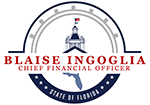Applicants with Criminal Histories
Permanent Bar:
Persons who have committed certain felonies are permanently barred from licensure. Other felonies and certain misdemeanors require the applicant to wait for a disqualifying period to lapse prior to applying for licensure. The department may not issue a license to an applicant unless all related fines, court costs and fees, and court-ordered restitution have been paid. Upon a grant of a pardon or the restoration of civil rights pursuant to chapter 940 and s. 8, Art. IV of the State Constitution with respect to a finding of guilt or a plea, such finding or plea no longer bars or disqualifies the applicant from licensure unless the clemency specifically excludes licensure in the financial services business; however, a pardon or restoration of civil rights does not require the department to award such license.
An applicant who has committed a felony of the first degree, a capital felony, a felony involving money laundering, a felony of embezzlement, or a felony directly related to the financial services business is permanently barred from a licensure. This bar applies to convictions, guilty pleas, or nolo contendere pleas, regardless of adjudication, by any applicant.
Disqualifying Periods
The following disqualifying periods must be met prior to application and the disqualifying periods begin upon the applicant’s final release from supervision or upon completion of the applicant’s criminal sentence:
A 15-year disqualifying period exists for all felonies involving moral turpitude which are not specifically included in the permanent bar above.
A 7-year disqualifying period exists for all felonies to which neither the permanent bar nor the 15-year disqualifying period applies.
A 7-year disqualifying period exists for all misdemeanors directly related to the financial services business.
Bail Bond Applicants ONLY: The applicant must not have been convicted of or pleaded guilty or no contest to a felony, or any crime involving moral turpitude (misdemeanor included), or any crime punishable by imprisonment of 1 year or more.
The lists above are only intended to provide guidance and may not include all felony crimes. Under certain circumstances, the classification of a crime may change. Aggravating and mitigating factors can affect the true length of the disqualifying period. However, mitigation may not result in a disqualifying period less than 7 years. The disqualifying periods begin upon the applicant’s final release from supervision or upon completion of the applicant’s criminal sentence, including payment of fines, restitution, and court costs for the crime for which the disqualifying period applies.
After the disqualifying period has been met, the burden is on the applicant to demonstrate that the applicant has been rehabilitated, does not pose a risk to the insurance-buying public, is fit and trustworthy to engage in the business of insurance pursuant to s. 626.611, F.S., and is otherwise qualified for licensure.
Please note: Aggravating and mitigating factors can affect the true length of the disqualifying period. However, mitigation may not result in a disqualifying period less than 7 years. The disqualifying periods begin upon the applicant’s final release from supervision or upon completion of the applicant’s criminal sentence, including payment of fines, restitution, and court costs for the crime for which the disqualifying period applies. After the disqualifying period has been met, the burden is on the applicant to demonstrate that the applicant has been rehabilitated, does not pose a risk to the insurance-buying public, is fit and trustworthy to engage in the business of insurance pursuant to s. 626.611, F.S., and is otherwise qualified for licensure.
Meeting the conditions above does not automatically guarantee the applicant will be granted licensure.
NOTE: The Department does not accept faxed court documents.
For more information, please visit the links below.
Representing Yourself at an Administrative Hearing
A page has been prepared by the Division of Administrative Hearings (DOAH) to explain the administrative hearing process in Florida under Chapter 120 of the Florida Statutes, and to help you prepare for a hearing.
It is important to remember that the information presented on this page is general and is intended to cover the usual situation. The explanations do not cover all of the possible situations which may arise in a case. You should also consult the rules of DOAH (Parts I and II of Chapter 28-106, Florida Administrative Code).
Individuals Seeking Consent Under 18 U.S.C. § 1033
The Florida Department of Financial Services does not issue consents under 18 U.S.C. § 1033.
Under 18 U.S.C. § 1033, an individual who has been convicted of a crime involving dishonesty or breach of trust is prohibited from engaging in the insurance business. Violation of this federal law could result in imprisonment for up to five years and a fine of $5,000. However, the law allows for a prohibited individual to obtain consent from an insurance regulatory official to engage in the insurance business.
While this federal law offers a way for individuals to obtain consent from state insurance regulators and avoid criminal prosecution, the law does not authorize the Florida Department of Financial Services ("Department") to grant or deny the consents. The Department’s power is limited to that authorized by the Florida Legislature through the Florida Statutes. Therefore, at the present time, there is no law in the state of Florida authorizing this Department to grant or deny consents under 18 U.S.C. § 1033 or to establish procedures for the exercise of its discretion in this regard.
Please be aware that any license you now have or may receive from this Department does not constitute consent under the federal law. You should therefore govern yourself accordingly.

